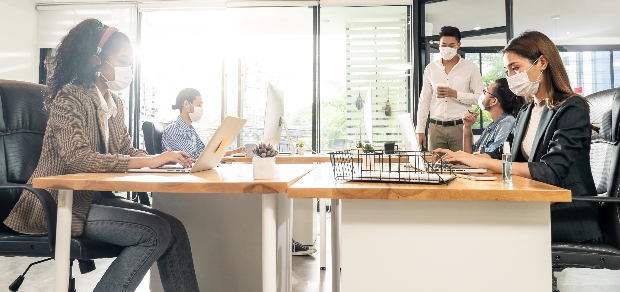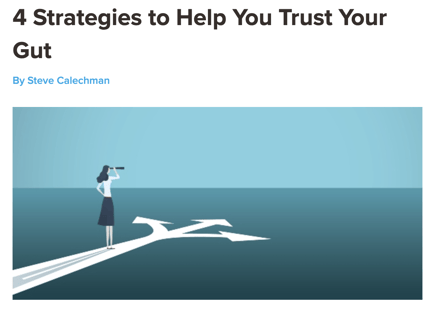
Because human beings are creatures of habit who like routine, change often feels disruptive and sometimes even scary. When the pandemic hit, we were all forced to change the way we did everything. The way we worked, the way we shopped, even the way we socialized and communicated with one another.
As vaccinations became widely available this spring, some regulations were lifted and it was looking like life might look relatively normal this summer. Then the Delta variant hit, ushering in another phase of uncertainty and constantly shifting policies around masks and gatherings. Some employers who planned to reopen offices this fall are now reconsidering in light of rising Covid case numbers. There is so much to consider—productivity, safety, cost, personal preferences—making it virtually impossible to satisfy all stakeholders.
As with all major decisions, there is wisdom in trusting your gut. However, it’s important to also educate yourself and play out different scenarios and outcomes. Good decisions usually come from striking a balance between analysis and instinct before landing on a course of action.

The Upside recently explored this topic in an article by Steve Calechman which outlines how to lead with what psychologist Robyn Landow calls “educated intuition.”
Here's a summary of the highlights:
Your gut is smarter than you think
Even though you might not be able to articulate why you feel a particular way, your gut feeling likely isn’t completely random or irrational. And even though the pandemic presents a new context, considering your employees’ health and safety is probably something you have done before. So your instincts are likely grounded in patterns of experience, or what you have seen and learned from previous situations where you had to make major decisions that impacted your team.
Visualize the possibilities
Knowing what is the “right” decision can be tricky, especially when there might be more than one option that could feasibly achieve the desired outcome. Many decisions come with a fear of choosing incorrectly and having thoughts of “what if?” afterward. To combat this, visualize every step of the way to determine which scenario has the most net positive results.
Accept uncertainty and keep looking forward
New possibilities might present themselves so what you decide is best in the short-term may need to be adjusted later on—and that’s okay. Don’t ruminate on the past or romanticize what might have been; instead stay focused on how to address or improve the current situation.
Read the full article here.
